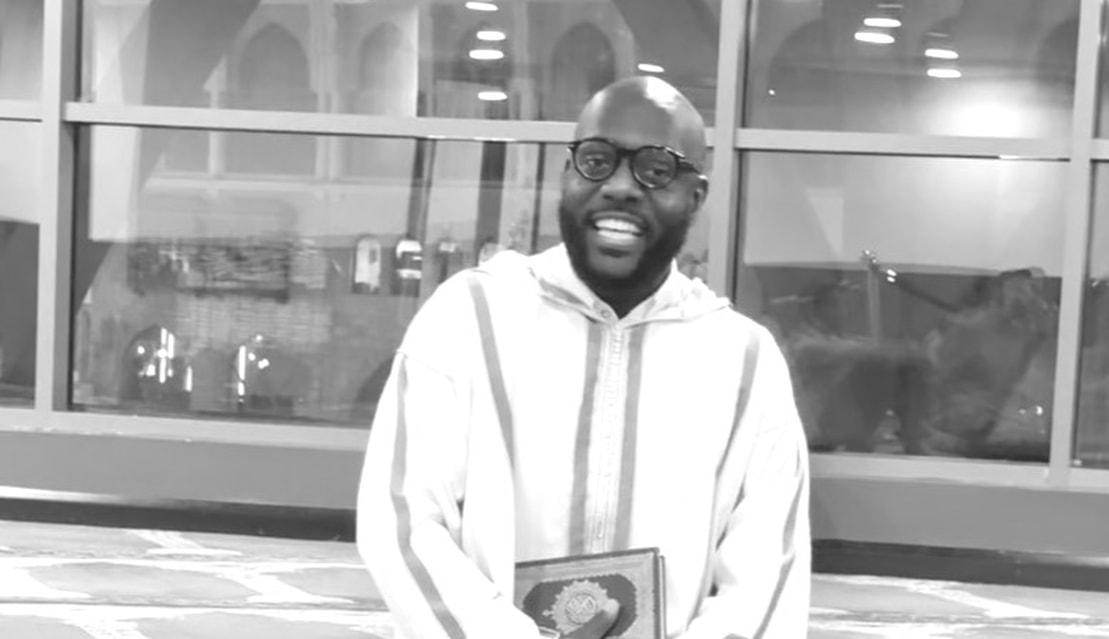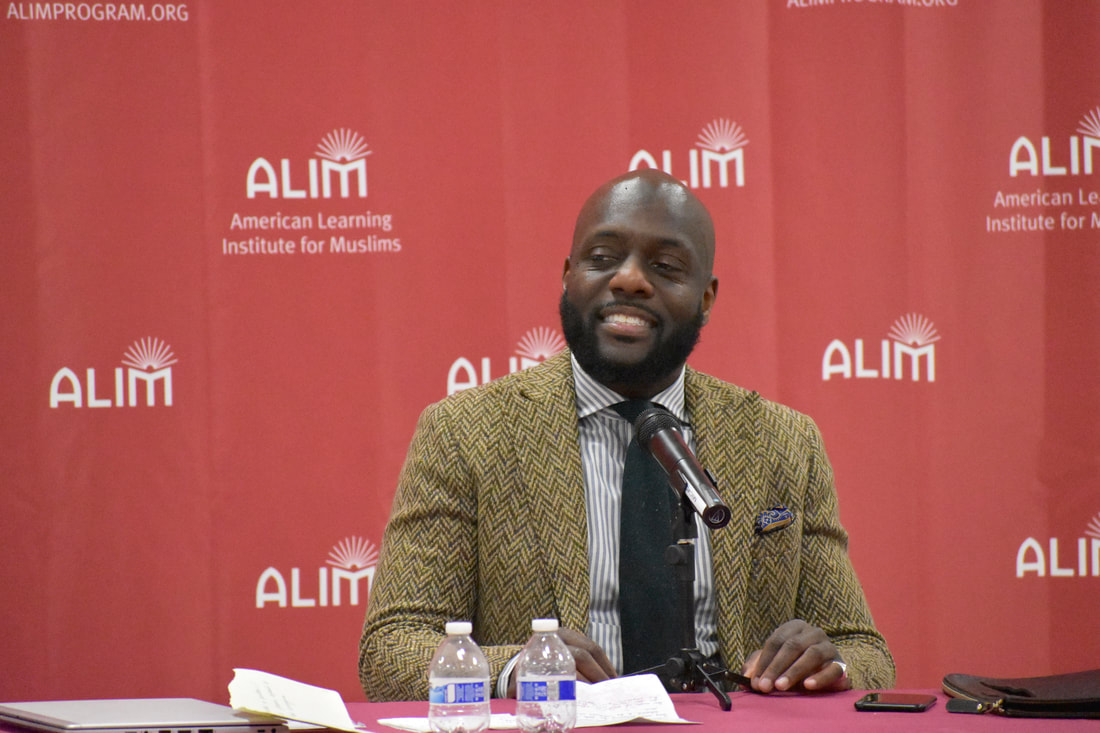by: Ustadh Ubaydullah EvansALIM's First Scholar-in-Residence Landing at King Abdulaziz International Airport was the penultimate stage of our journey and already the adrenaline was starting to course through my veins. It was between the time of the Afternoon Prayer (Dhuhr) and the Late Afternoon Prayer (Asr). The weariness of travel, and at this point we had been traveling for an entire day, gave way to child-like ebullience. I was giddy. As my talbiya grew in intensity and purpose, I scanned my surroundings and took in the environment. This was the desert; barren, rocky, arid, and isolated. And yet there we were, with a million other pilgrims, voluntarily converging on this otherwise unremarkable destination. I reflected upon the verse: “And proclaim the Pilgrimage among men: they will come to thee on foot and (mounted) on every kind of lean camel; they will come from every deep ravine…” [22:27] Relative to the number of religions and traditions that exists among humanity, the places of pilgrimage are few. And Makkah is unquestionably the greatest of them. We often hear other venues heralded as the “Mecca” of this or that. I don’t think I really understood the preeminence of the Haram before visiting. As we neared the sanctuary, I began to see every shape, size, and physical characteristic imaginable within a human being. Later during the trip, Dr. Jackson would comment: “It’s miraculous. Every face is essentially made up of the same attributes (forehead, eyes, nose, mouth, chin, etc) and yet somehow we all look different.” Perhaps just as remarkable, is our ability to distinguish between the slight variations that make up the lineaments of all the different faces we encounter. “And of His signs is the creation of the heavens and the earth and the diversity of your languages and your colors. Indeed, in that are signs for those who have knowledge.” [30:22] Arriving to the sumptuous lobby of the Conrad, a Hilton hotel just a stone’s throw from the sanctuary, two things were impressed upon me: First, the modern West has asserted itself as a global cultural leader because of its simultaneous exclusivity in its commitment to its goal (the maximization of corporate profits) and flexibility in the means taken to achieve that goal (our brand can accommodate any preference from Las Vegas to Makkah!). As Muslims, we could learn a great deal from this. Secondly and perhaps more personally, as I settled into my suite in preparation to make Umrah, I could peer out of the window and see countless numbers of pilgrims resting in the public thoroughfares and walkways. The salt of the earth, these were people that had literally “sold the farm” for an opportunity to be present within the Haram. Subhanallah (Glory be to God)! As a Black man from America, I have inherited a particular orientation toward privilege. Namely, given the intergenerational oppression Black people in America have endured, I often feel “no matter what I have, it is less than I deserve.” As a Muslim, it goes without saying that gratitude is a core value. And I’ve always made an earnest effort to be grateful. Yet, those intrusive thoughts: where would I be if my people had been compensated for their labor? What if my great-grandfather didn’t face restrictive covenants (housing discrimination) and could purchase a home in an area with appreciating values? How might that have altered my fortunes? These are important questions—especially in the national conversation around reparations. However, my trip to the Haram produced a countervailing narrative in my mind: “Subhanallah, look at what God has given you in comparison to so many others in the Ummah. Are you being a responsible steward of what you’ve been given? This is unquestionably a test; as one of the “haves” of the Ummah, how are my resources (monetary and non-monetary) benefitting my community? My perspective had definitely been enriched. Due to crowd sizes—which we were told were unusually large—Imam Muneer, who had preceded us to Makkah by a few days, suggested that we postpone our Ṭawāf. Instead of the initially proposed 3:00, we would now be going as a group at 8:00. Upstairs in our room, the distinction between the inexhaustible vigor of youth and a ripened consideration for one’s limitations became clear. I was in desperate need of a nap but Aasiyah was full of eager anticipation, ready to explore! Wrapped only in my ihram, atop the bedspread (out of an abundance of caution) in a state of semi-consciousness, I motioned to her that going out was ok and then snapped to life for a stern “be careful!” This ended up being more significant than either of us could have imagined. When she returned, we hustled to the lobby to meet the group at 8:00. Not a single familiar face; we didn’t see anyone from our group. Were we late? No, it was only 7:50. We paced the lobby, peering around corners. At about 8:10, Aasiyah and I looked at each other and a shared recognition of what was happening began to register in our faces: For this milestone it would just be she and I. Subhanallah. As I sat there trying to get my coordinates and determine the best way to enter the Ḥaram, Aasiyah offered: “No, dad. It’s this way. There’s a corridor at the lower level of the hotel that leads right to the steps.” “Are you sure?” I countered? “When I went out and ate, I was walking thru the corridor and found myself at the threshold of the mosque. My curiosity almost led me inside but then I thought, I probably shouldn’t enter with a box of half-eaten chicken,” she replied. We laughed. And it provided just the right amount of levity for her to grab my arm: “C’mon dad, I’ll show you.” La ilaha illa Allah. I let her lead the way. My first born, separated from me by just 23 years, with me through the most tumultuous periods of my life, was now guiding me into the House of God. We wept together. Our path had been a winding road. And at many times, I’m sure she questioned: What is this man doing? Where are we going? And I often had no answer but would pretend to be confident. Internally, I was praying that some landmark would eventually come into view that would offer assurance I was going the right way. And there we were, gazing upon the Ka’aba in all of its awe-inspiring splendor. All roads lead to Makkah. That moment felt like an eternity. I would have been content to remain right there; tears streaming down my face, eldest child in my embrace, staring at the Ka’aba, mysterious and magnetic. However, just then, with equal symbolic importance, we felt the surge of the pilgrims and we had to move. Allahu Akbar! A generous life provides moments of beatitude and transcendence but never stillness. It is exertion and worship. 7 circuits…
Since then, he has studied at Chicagoland’s Institute of Islamic Education (IIE), in Tarim, Yemen, and Al-Azhar University in Cairo, Egypt, where he is the first African-American to graduate from its Shari’a program. Ustadh Ubaydullah also instructs with the Ta’leef Collective and the Inner-City Muslim Action Network (IMAN) at times.
As the ALIM Scholar-in-Residence, Ustadh Ubaydullah is a core instructor at the ALIM Summer Program. He teaches History of Islamic Law, Shama'il, and Aphorisims of Ibn Ata'illah along with other courses.
1 Comment
Asif
2/17/2024 11:00:41 am
Jazakhallah khair. This is a beautiful essay Mashallah. Ustadh Evans is one of our most gifted thinkers and teachers and should write a book someday Inshallah!
Reply
Leave a Reply. |
|
stay connected
@alimprogram
PO Box 871785 Canton, MI 48187
(734) 956-0698
(734) 956-0698
2024 © American Learning Institute for Muslims. All rights reserved.
ALIM is a 501(c)(3) organization. All donations are zakat-eligible and tax deductible. Our EIN is 38-3633579.
Zelle: [email protected]
Terms of Service | Privacy Guidelines | Sign Up for ALIM Emails I Get ALIM Text Alerts
ALIM is a 501(c)(3) organization. All donations are zakat-eligible and tax deductible. Our EIN is 38-3633579.
Zelle: [email protected]
Terms of Service | Privacy Guidelines | Sign Up for ALIM Emails I Get ALIM Text Alerts



 RSS Feed
RSS Feed